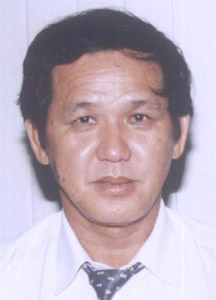Chief Justice (ag) Ian Chang yesterday overruled the preliminary objections raised in the parliamentary committees’ case and will next Wednesday hear arguments on whether a constitutional breach has occurred in the numerical make-up of those committees.
Following the hearing, Attorney General Anil Nandlall and Senior Counsel Ashton Chase both told Stabroek News that the judge overruled the objections that were raised. The two are representing the government which had filed a constitutional motion to reverse the composition of the select committees.
According to Chase, the judge “now wants to hear the substance of the matter”.

A team of lawyers representing Opposition Leader and leader of the list of candidates for A Partnership for National Unity (APNU) David Granger and Speaker of the National Assembly Raphael Trotman, has argued that the court cannot delve into the affairs of Parliament unless the constitution has been breached.
Attorney Basil Williams, in an invited comment yesterday, said, “the issue is whether there is a constitutional breach. That’s the issue he [the judge] wants to hear arguments on because from what we have said, he cannot go into our internal affairs unless there is a constitutional breach so the first thing he has to examine is the affidavit filed by the AG to see whether the facts show a constitutional breach.”
Williams, who is representing Granger, added that after hearing the AG’s submission on this point, “hopefully we will respond because the last time he didn’t allow us to respond”.
According to the motion filed earlier this month, Nandlall is seeking a declaration that all standing committees and special select committees of the National Assembly of the 10th Parliament “are to be constituted in proportion” to the number of seats which each political party was allocated in the National Assembly based on the elections results.
“The composition of the Committee of Selection is violative of the principle of proportionality as contemplated by the Constitution since with this configuration the PPP/C with 32 seats has the same representation in the committee with APNU which only secured 26 seats. Therefore the PPP/C has only 44.44 per cent of the representation with 32 seats and APNU has the same 44.44 per cent representation, but with only 26 seats, leading to a disproportionality of almost five seats,” he argued.
He is also seeking a declaration that the composition of the Committee of Selection done by elections – PPP/C, four; APNU, four and AFC, one – is a violation of the “principle of proportionality as contemplated by Articles 60 and 160 of the Constitution and the provisions of the Elections Law (Amendment) Act No 15 of 2000 and accordingly, unconstitutional, unlawful, null, void and of no effect.”
He is additionally asking the court for orders setting aside, revoking, cancelling or annulling the composition of the committee on the grounds that it was in breach of the Constitution and a breach of the provisions of the Elections Laws (Amendment) and further directing the respondents and their servants/agents to constitute all Standing Committees and Sectoral Committees and every other Committee of the 10th Parliament, whose composition is not expressly set out in the Constitution, with due regard to and in compliance with the principle of proportionality.





